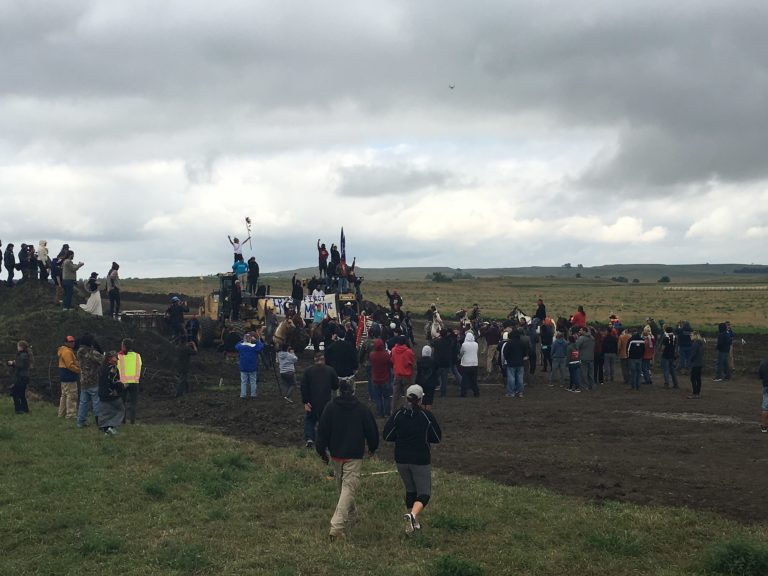Waterkeeper Alliance Responds to Desecration of Standing Rock Sioux Tribe Sacred Sites by Dakota Access Pipeline
By: Waterkeeper Alliance

NEW YORK, NY — September 6, 2016 — This past Saturday, Energy Transfer Partners bulldozed historically and culturally significant Standing Rock Sioux tribal sites in its latest attempt to construct its massive 1,168 mile Dakota Access Pipeline project. Less than 24 hours before Energy Transfer Partners bulldozed these sites, the tribe had provided evidence that the sites are culturally significant in court documents filed in ongoing litigation challenging the permitting of the pipeline. On Sunday, the tribe filed an emergency motion for a temporary restraining order to prevent further destruction of the sacred sites.
Today, the construction on the pipeline between State Highway 1806 and 20 miles east of Lake Oahe has been halted. However, the U.S. District Court Judge James E. Boasberg found that he lacked jurisdiction over the lands west of the highway, where the destruction of sacred sites has been occurring, because the National Historical Preservation Act applies only to federal agency action, and the land was not under the jurisdiction of the U.S. Army Corps.
Earlier last week, Waterkeeper Alliance and 93 Waterkeeper organizations across the globe issued a statement of solidarity to the Standing Rock Sioux Tribe. Currently, two Waterkeepers, Savannah Riverkeeper Tonya Bonitatibus and Hurricane Creekkeeper John Wathen are at the site of the protests and Waterkeeper Alliance National Director, Pete Nichols, was on site last week.
Daniel E. Estrin, General Counsel & Legal Director, Waterkeeper Alliance, stated, “Based upon reports from the Standing Rock Sioux Tribe’s lawyers, on Friday, September 2, the tribe provided to the federal court in Washington, D.C. specific locations along the planned pipeline route where evidence of sacred burial and other culturally important sites had been identified by experts. The tribe’s intent was obviously to protect these irreplaceable sacred sites by requesting that the court consider them in connection with a pending motion for a preliminary injunction, on which a ruling is expected by this Friday. Shockingly, the day after the tribe notified the court of the specific locations of the sacred sites – and knowing the tribe would not be able to get into court over Labor Day weekend – Dakota Access LLC sent work crews with bulldozers and other heavy equipment out to the very locations that had been identified by the tribe and physically destroyed them. If these allegations against the pipeline company are true, in the 23 years that I have practiced and taught environmental law, I have never seen such an outrageous, unconscionable, and bad faith abuse of the legal process. It also plainly demonstrates that contrary to the pipeline company’s spin, it is the company, not the tribe, that is the aggressor here.”